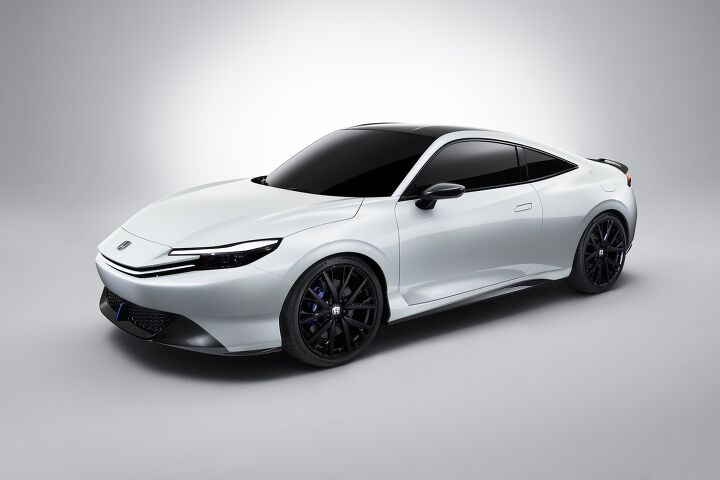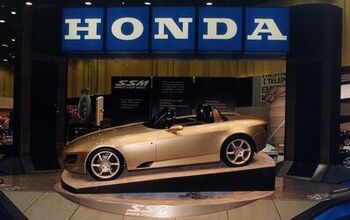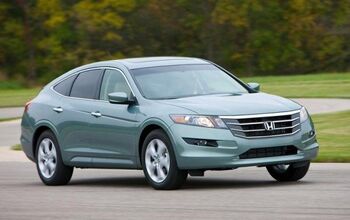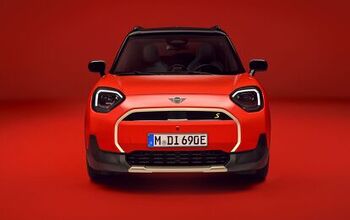Honda Shows Prelude Concept in Japan

Score one for the gearheads. At this year’s Japan Mobility Show (yes, it – like many other auto shows – has changed its name to include that irritating catch-all word), Honda president Toshihiro Mibe rolled out a two-door coupe called the Prelude. It’s a concept for now, of course, but our hopes are buoyed by one phrase uttered by Mibe during the car’s introduction.
“We are diligently progressing with development,” said Mibe, “So please keep your expectations high for this model.” Will do, sir. After defining the word, Mibe went on to explain how this model will become an, erm, prelude, for future models which will inherit some measure of driving joy. With that in mind, there is every chance in the world this low-slung car is simply being used as hype for some other message coming down the pipe – but we’ll choose to interpret these words in a non-cynical manner (for once).
Car companies craft plenty of concepts that never see the light of a production floor, though the presence of the GR 86 at rival brand Toyota gives us hope this Prelude will eventually appear in showrooms as a foil to the two-door Toyobaru. But if that were to happen, there would likely be a big difference between those two models. While precisely zero details were spilled about what is (or isn’t) under the hood, Mibe touted the Prelude Concept as a window to Honda’s electrification plans.
Company spox spoke of the brand’s edict of a “full-fledged electrified future”, words which are being interpreted by some outlets as meaning the Prelude Concept is an EV. Fair enough – and, if so, bank on it using Honda’s own electric architecture and not the stuff they’re borrowing for GM to sling under its upcoming Prologue. But, as with most presentations of this type, there’s enough wiggle room in the sentences to leave the door open for this thing to be some sort of hybrid.
In any event, the machine shown in Japan looks remarkably production-ready, free of over-the-top frippery which sometimes adorns concept cars to signify they are simply flights of fancy. Most of us are old enough to remember when Honda and Toyota used to go at it hammer and tongs in this type of sporty segment (Prelude v Celica, et al); it would surely be to the delight of all gearheads if that competition was renewed in the coming years.
[Image: Honda]
Become a TTAC insider. Get the latest news, features, TTAC takes, and everything else that gets to the truth about cars first by subscribing to our newsletter.

Matthew buys, sells, fixes, & races cars. As a human index of auto & auction knowledge, he is fond of making money and offering loud opinions.
More by Matthew Guy
Latest Car Reviews
Read moreLatest Product Reviews
Read moreRecent Comments
- W Conrad I'm not afraid of them, but they aren't needed for everyone or everywhere. Long haul and highway driving sure, but in the city, nope.
- Jalop1991 In a manner similar to PHEV being the correct answer, I declare RPVs to be the correct answer here.We're doing it with certain aircraft; why not with cars on the ground, using hardware and tools like Telsa's "FSD" or GM's "SuperCruise" as the base?Take the local Uber driver out of the car, and put him in a professional centralized environment from where he drives me around. The system and the individual car can have awareness as well as gates, but he's responsible for the driving.Put the tech into my car, and let me buy it as needed. I need someone else to drive me home; hit the button and voila, I've hired a driver for the moment. I don't want to drive 11 hours to my vacation spot; hire the remote pilot for that. When I get there, I have my car and he's still at his normal location, piloting cars for other people.The system would allow for driver rest period, like what's required for truckers, so I might end up with multiple people driving me to the coast. I don't care. And they don't have to be physically with me, therefore they can be way cheaper.Charge taxi-type per-mile rates. For long drives, offer per-trip rates. Offer subscriptions, including miles/hours. Whatever.(And for grins, dress the remote pilots all as Johnnie.)Start this out with big rigs. Take the trucker away from the long haul driving, and let him be there for emergencies and the short haul parts of the trip.And in a manner similar to PHEVs being discredited, I fully expect to be razzed for this brilliant idea (not unlike how Alan Kay wasn't recognized until many many years later for his Dynabook vision).
- B-BodyBuick84 Not afraid of AV's as I highly doubt they will ever be %100 viable for our roads. Stop-and-go downtown city or rush hour highway traffic? I can see that, but otherwise there's simply too many variables. Bad weather conditions, faded road lines or markings, reflective surfaces with glare, etc. There's also the issue of cultural norms. About a decade ago there was actually an online test called 'The Morality Machine' one could do online where you were in control of an AV and choose what action to take when a crash was inevitable. I think something like 2.5 million people across the world participated? For example, do you hit and most likely kill the elderly couple strolling across the crosswalk or crash the vehicle into a cement barrier and almost certainly cause the death of the vehicle occupants? What if it's a parent and child? In N. America 98% of people choose to hit the elderly couple and save themselves while in Asia, the exact opposite happened where 98% choose to hit the parent and child. Why? Cultural differences. Asia puts a lot of emphasis on respecting their elderly while N. America has a culture of 'save/ protect the children'. Are these AV's going to respect that culture? Is a VW Jetta or Buick Envision AV going to have different programming depending on whether it's sold in Canada or Taiwan? how's that going to effect legislation and legal battles when a crash inevitibly does happen? These are the true barriers to mass AV adoption, and in the 10 years since that test came out, there has been zero answers or progress on this matter. So no, I'm not afraid of AV's simply because with the exception of a few specific situations, most avenues are going to prove to be a dead-end for automakers.
- Mike Bradley Autonomous cars were developed in Silicon Valley. For new products there, the standard business plan is to put a barely-functioning product on the market right away and wait for the early-adopter customers to find the flaws. That's exactly what's happened. Detroit's plan is pretty much the opposite, but Detroit isn't developing this product. That's why dealers, for instance, haven't been trained in the cars.
- Dartman https://apnews.com/article/artificial-intelligence-fighter-jets-air-force-6a1100c96a73ca9b7f41cbd6a2753fdaAutonomous/Ai is here now. The question is implementation and acceptance.


































Comments
Join the conversation
So a Honda Nissan Z with hybrid power? As an ex-'89 Prelude Si owner I doubt Honda can recapture that magic.
We can still spray paint the hood black and put a body kit on it, but if it's an EV, where does the fart can go?